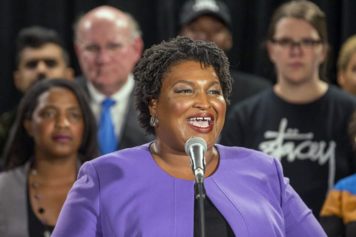The AJC reports that Gov. Nathan Deal is facing a $40 billion dilemma. The federal health care law would inject that gigantic sum into Georgia’s health care economy over 10 years by adding more than 650,000 low-income Georgians to the Medicaid program.
Deal, a strong opponent of the law, is wary of the proposition. The state projects that Georgia’s share of the law’s $40 billion cost for a fully expanded Medicaid program would reach $4.5 billion over a decade, a sum the governor fears would break a state budget already stretched by health costs.
From a political perspective, Deal could safely turn down the expansion since the law is wildly unpopular among Republicans. In fact, Republican governors in at least five states have already announced they will do just that.
“Medicaid is a failed program,” said Texas Gov. Rick Perry. “To expand this program is not unlike adding a thousand people to the Titanic.”
Signing onto the expansion, however, would unleash a flood of federal dollars. The feds would cover $36 billion of the new costs to Georgia’s Medicaid program over 10 years, according to the state’s estimates.
Viewing the Medicaid expansion from a business perspective makes it harder to reject, some economists argue, especially at a time when Georgia’s economy needs every boost it can get.
The federal dollars would cycle through the state’s economy and have an overall economic impact of $72 billion between 2014 and 2023, said Jeff Humphreys, director of the University of Georgia’s Selig Center for Economic Growth. That computes to $16 in impact from federal dollars for every $1 from state coffers, Humphreys projected.
“That’s a really sweet deal,” Humphreys said. “No business would ever pass up a deal like that.”
The deal’s details
The Medicaid expansion is a cornerstone of the federal health care law. Without it, the law’s goal of extending health care coverage to most Americans will remain out of reach.
In Georgia, where about one in five residents doesn’t have insurance, the law would significantly reduce the number of people who can’t pay for health care. It would also cut down on the money Georgia hospitals lose caring for sick people who have no health insurance and no money to pay the bill.
Deal has not announced a decision, saying he wants more information and will wait until after the November elections to make a final decision…
Read more: AJC


